The desire for progress
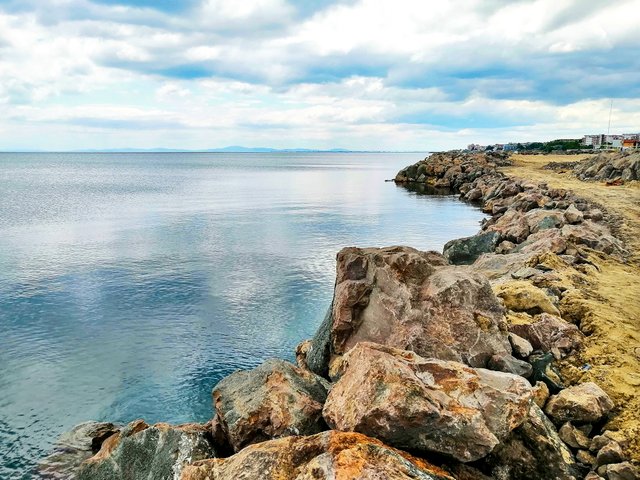
I don't know if it was a coincidence that on the Saturday movie night dedicated to European cinema, the apocalyptic Italian movie Siccità/Dry was shown on national television.
I don't know how many villages are currently without water in the country. This they have now deemed unimportant to mention again (just as it was unimportant to mention the floods in Central Europe or the fires in Portugal, as if this thing were somewhere far away from us, of no concern to us, and no interest.)
But this movie seemed very well thought out and planned to be shown right now, as everything is thought out and well planned on national television to influence the masses, to push them in one direction or another, to manipulate and shape their thought, the way of their thinking and opinion, subsequently their behavior and their whole life.
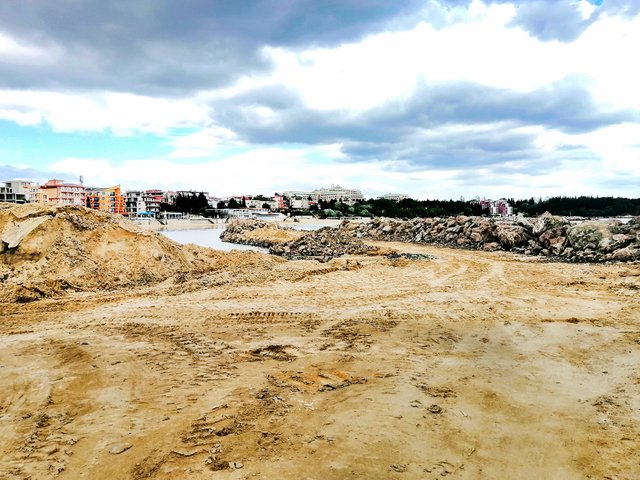
And so we saw in this movie, although fictional, how in the capital of a developed country where we all dream of going on a trip, something could happen, a total apocalypse that would put the population to the test and eventually start to exterminate it. That way we can calm down, we can sleep peacefully. As in other, wonderful countries, it COULD become what is actually happening to one degree or another in our country.
Sedation, that is the intended effect of this movie in my opinion, because there is a need for it. People have already started protesting in some settlements, and this is worrying. No one is protesting in Bulgaria, so these thoughts must be suppressed. Let's play a movie for them to calm down a bit.
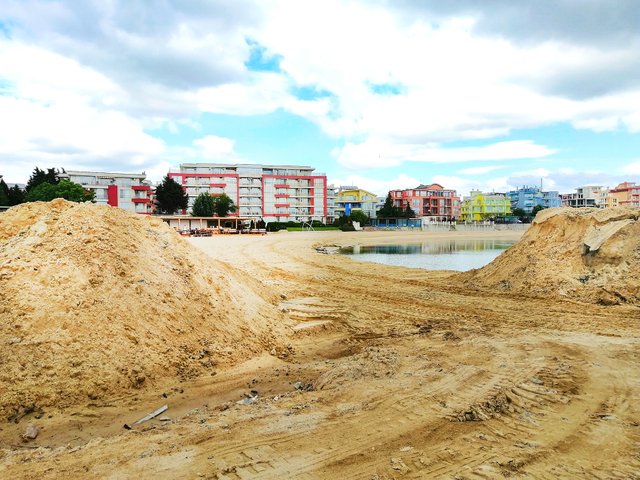
Just recently I came across a very interesting post somewhere on here about poverty and how many generations it takes for different countries to lift a family out of poverty.
At first I thought about the stated thesis and agreed. Logically, following my personal logic too, no one wants to be poor, everyone should really strive to get out of the unfavorable situation they are in.
But in fact, we are not only talking about a family story here, there are so many factors involved, also the desire of an entire country to get out of poverty and improve its living conditions.
From recent events in the country, as well as in the village where I live, I realized that the country itself, not only the ordinary people in it, has no desire to improve, that, in my opinion completely natural instinct for progress, which is the basis of my overall logic. The desire for progress is simply lacking at any level of the country's life. The government has many benefits for the population to remain poor, even uneducated, the companies tied to services to the population also enjoy this situation to continue to provide low quality and poor service, and the people just put up with it and continue to live the old way. Thus, the theory of generations that are needed for a family to rise out of poverty is shattered. Because the state itself does not want to get out of it.
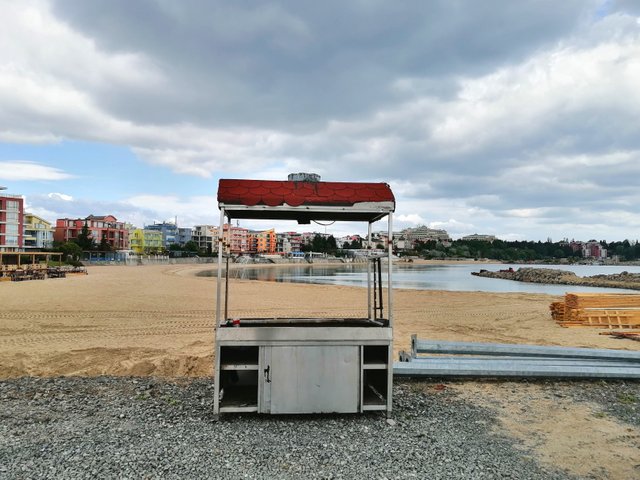
In the village where I live, there is a problem with water constantly, or during certain periods of time. But in the last one month, even though the summer, heat and drought are over, the problem is permanent.
We already know that the aridity in the country is not due to drought. The country itself is well watered, having many large rivers, springs, mountains, etc. The lack of water is due to an outdated water transmission network, unwillingness to renew it, theft of water, unregulated use, impossibility of quality management and corruption.
But there is something else added to all this, and we learned it only now, at the end of this one month of constantly stopping and missing water.
I told you about a recent conversation I had with the guy on the water company's emergency line that I call quite often. How, he sounded drunk even before 12 p.m. and as usual was not familiar with the problem of the village.
Well, I then called again this last month and one Friday, during which he lisped more than usual and said that the technicians were already on site and have fixed the damage and we had water now, but we didn't. Then it turned out that no technicians had come to the village at all, and no one had been notified of anything likely. The water was never released that day.
Then we found out that in fact no one from the village calls this phone to notify about the constant accidents, and that this phone, officially announced on the Internet as an emergency phone, is actually answered by the security of the building of the water supply company, who do not have no idea of this activity in principle.
When the water goes out, our neighbor, the only one we have contact with (and who refused to greet me for years) usually calls my partner's phone to find out if we're also out of water. But he never actually calls the so-called "emergency phone", at least in some attempt to notify the company that something is wrong in this village once again.
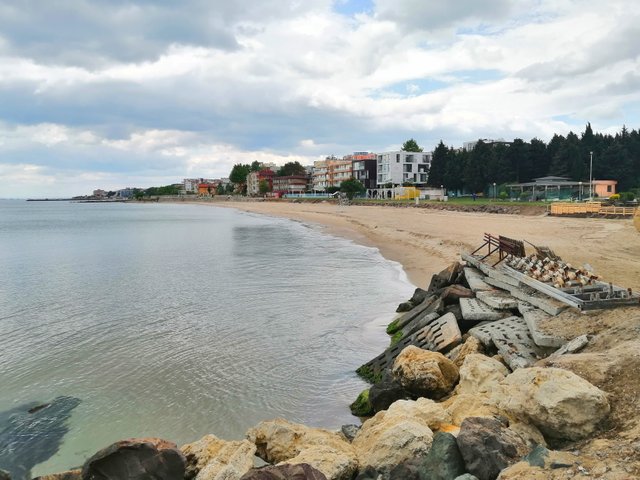
Everyone is silent, no one is doing anything, everyone is waiting for the water to just be turned on, eventually, someday. That is.
Do these people want to continue living this way - with a low quality of life?
Well, from my point of view, yes, they do. If they don't do anything to improve their situation, then they want to. Just like poor people want to stay poor. Of course they will. That's the easier way.
And what does poverty mean? If you have some money, home and food, but you live in a low quality - you have no water, electricity, the water in the tap is unfit for use, the food in the shops is of poor quality, because in Bulgaria it is like that, the quality of the services you receive is low, does that make you not poor, even if you had enough money to survive?
Looking at even my family where my parents raised us in poverty but now they have enough money, they renovated my grandparent's whole house and now they live in comfort, they can afford all kinds of food that we couldn't before, clothes and everything, does that make them rich when they also live in a settlement with poor services, no water, no electricity, no internet, etc.?
I think the concepts of poverty and wealth are quite blurred here. And we are not even talking about entire generations, but what happens within just one generation - the people themselves have changed, but many of the things around have not. And there is no prospect of that in the future.
A Belgian friend told me some time ago that Bulgaria is somewhere 50 years behind his country, but even that I don't believe anymore, since I don't see the progress expected of me in any field anymore. There is no forward movement that could possibly lead us in 50 years to the state of Belgium now. I'm even seeing moves backwards in some areas, which is even more discouraging.
| Thank you for your time! Copyright: | @soulsdetour |
|---|---|
 | Soul's Detour is a project started by me years ago when I had a blog about historical and not so popular tourist destinations in Eastern Belgium, West Germany and Luxembourg. Nowadays, this blog no longer exists, but I'm still here - passionate about architecture, art and mysteries and eager to share my discoveries and point of view with you. |
Personally, I am a sensitive soul with a strong sense of justice.
Traveling and photography are my greatest passions.
Sounds trivial to you?
No, it's not trivial. Because I still love to travel to not so famous destinations.🗺️
Of course, the current situation does not allow me to do this, but I still find a way to satisfy my hunger for knowledge, new places, beauty and art.
Sometimes you can find the most amazing things even in the backyard of your house.😊🧐🧭|
I read every single word of your post. Why am I mentioning this? Because I can totally relate. Where I live, we don't have any issues with water, and neither do my parents or other relatives, thankfully, water is not a problem for us. However, generally speaking, we are also moving backwards in other ways. The concept of wealth and poverty that you expanded on so meticulously really resonated with me.
Looking back, my parents are more established and have flourished financially, but the country as a whole hasn’t. We face situations similar to your "water complaint operator" experience in almost every government department. If the electricity goes out, you have no idea when it will be restored. They often just leave the phone line busy. I also recently wrote about my passport application, I paid for the fast track but never received it any quicker, and I had no one to follow up with regarding my queries.
Why is it like this? We, as a nation, are also to blame. We’ve grown accustomed to being content with the bare minimum. Or maybe it's because we don't have the energy or resources to challenge the system. I’m not sure if it's corruption or other factors at play, but we've been conditioned to be satisfied with a "just put out the fire" and "survivalist" mentality.
I remember your post about passports and running out of ink. Then I was: Wow, we've never had a situation like this.
But here, as you can see, we have problems with other things - water and electricity too. In a conversation with an acquaintance recently, she asked me what life was like in a village, because she was thinking of moving from the town and working online. I told her she needed a generator. "And how is the internet, because years ago we were known all over Europe for the top internet?" - "Well, that was a long, long time ago, more than 10 years ago. Then the phone service providers monopolized that market too, kicked out almost all the small ISPs that offered quality service and drastically reduced the quality while increasing the prices every year." This is just one small example of how it goes backwards. At the same time, the country absorbs resources from the EU, which imply development, at least I think so, but I see a constant regression. My partner tells me that I don't see progress because I live outside the capital where everything is happening, but when I lived there last there were also problems with water and electricity, even though people have jobs and get higher wages there...
I agree. Bulgarians also settle for little and simply survive. They even taught us that in university lol. Our entrepreneurship teacher had said this: "Do you know what Bulgarians are famous for? - By surviving in any conditions."
The government knows it, companies know it, even foreign employers take advantage of this fact.
But with us, there is something additional, which is quite worrying for me personally. We have a saying: "It is not important that I am well, it is important that my neighbor is worse off."
Many people try to mask this trait of mentality, but it is visible in everyday life. Here is, for example, how our neighbor calls when the water stops. He finds out that we also have no water and ok, that's it, so I'm fine, as long as my neighbor is in the same situation, I don't need to do anything else, let the work be done by someone else, I won't file a report, none of my business. Then how can you expect this neighbor to help you with anything?
That's why every time I'm abroad, I'm amazed, even shocked, by the random acts of kindness of total strangers, because I've never experienced such things in my own country, where people lack many... human traits. And as I have always said - I am too sensitive to live in this country, at the very least, I care about hygiene, which can hardly be maintained under these living conditions.
Does it rain fairly regularly? Can you collect roof rainwater, dew? It might sound stupid and backwards but that's what I do.
It's not stupid by any means, and backwards is when you once had something and then you stop having it, they stop providing it to you as a service.
My partner is already thinking in this direction, in Bulgaria the systems for buffering the lack of water are rather underground and not on the roof, at least that's what I know. And no, it doesn't rain much here, I think it hasn't rained all summer, it just started raining now. But as I said, the problem here is not the lack of water, but the lack of desire to repair the outdated and damaged water network.